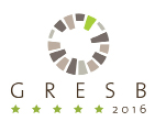From the Green Building Certification Inc., Washington, D.C. … An Amsterdam-based provider of property asset environmental, social and governance (ESG) performance data, GRESB released the results of its 2016 Real Estate, Developer and Debt assessments. New data show that real estate companies and funds are improving across all aspects of ESG performance, including reductions of 1.2 percent in energy consumption, 2 percent in greenhouse gas emissions and nearly 1 percent in water use. Real estate interests are also putting greater focus on occupant health and well-being.
“The 2016 data demonstrates that the global real estate sector is working to manage its carbon footprint, build resilience in the face of climate change and respond to more stringent environmental regulations,” says GRESB CEO Nils Kok. “In 2016, 90 percent of property companies and funds reporting to GRESB are integrating carbon management strategies into their investments. These actions have contributed to a decrease in carbon emissions equivalent [to] taking 704,464 passenger cars off the road.”
A record 759 real estate companies and funds participated in the assessment, representing more than 66,000 assets across 63 countries, with a value of $2.8 trillion. Entities reporting to GRESB for seven consecutive years outperform their peers by an average of 12 points across all aspects of ESG. As a result, the overall GRESB score increased by 11 percent to 60. In 2016, 18 funds participated in the GRESB Debt Assessment—an increase of 80 percent over the prior year figure—netting figures that show debt score increasing by 6 percent, to 48.
“GRESB ESG performance data and trends matter because they show that, on average, property companies and fund managers are acting to improve sustainability performance. Leading companies and funds are being rewarded with more efficient and more desirable properties, which may ultimately translate into better financial performance,” says Townsend Group Principal Jennifer Young.
Among 2016 survey highlights: Entities reporting to GRESB for seven consecutive years outperform their peers in ESG aspects by an average of 12 points; Australian entities outperform all other regions with an average score of 74, which is 14 points above the global average; office companies and funds outperform other property types with an average score of 66; and, listed property companies outperform private equity entities by six points.
Participating companies and funds provided operational data for more than 22,000 individual buildings, including energy, water and waste performance. Now in its seventh year, the GRESB Real Estate Assessment has established itself as a roadmap to high sustainability performance and low carbon emissions for the real estate sector, assessing more than 1,100 real estate portfolios since its inception.
 |
| GRESB provides comprehensive energy performance, carbon management, water conservation, waste management and health and wellbeing data. |
INVESTOR-GEARED ENERGY EFFICIENCY STANDARD
The U.S. Green Building Council’s Green Business Certification affiliate is teaming with the Environmental Defense Fund (EDF) to develop, deliver and promote the Investor Confidence Project (ICP) as the premier global underwriting standard for energy efficiency projects, primarily in building retrofits. ICP will join GBCI’s portfolio of credentials and certifications, topped by the Leadership in Energy and Environmental Design building rating system.
The partnership follows the rapid adoption of the ICP system, including its certification for Investor-Ready Energy Efficiency (IREE) projects in the buildings sector, with successful programs and pilots in the United States and Europe. “Investment in energy efficiency is one of the most powerful levers for transforming the built environment. GBCI and EDF are ensuring that these investments yield positive results for the environment and the bottom line,” says GBCI President Mahesh Ramanujam, who also serves as U.S. Green Building Council chief operating officer. “GBCI continues to expand its portfolio to work toward a greener future, and the Investor Confidence Project is another big step in engaging the financial community in driving smart, energy-saving decisions that will deliver higher performance in existing buildings worldwide.”
ICP works to transform the energy efficiency market by increasing confidence in the financial and environmental performance of building retrofits, he adds. It offers investors and developers a standardized roadmap to assess risk and deliver on project results by optimizing performance and monitoring the outcome of energy efficiency investments to generate financial savings. By streamlining transactions and increasing the reliability of projected energy savings through its IREE certification, GBCI notes, ICP reduces overhead costs to bring energy efficiency projects to market.
“The world’s buildings account for about 40 percent of all energy use, and, in major cities like New York and London, that figure as much as doubles. What’s more, up to half of this energy is wasted,” contends EDF Chief of Strategy, Global Energy and Finance Andy Darrell. “ICP offers a system for investors and developers to access the trillion-dollar energy efficiency market, which remains largely untapped. Our partnership with GBCI builds on ICP’s momentum, mobilizing capital to finance efficiency and cutting harmful pollution around the world.”
GBCI will work to scale ICP from a project conceived, incubated and developed at EDF in the U.S. and Europe to a market-based standard, housed at GBCI and capable of global growth and alignment with other GBCI programs. “We’ve known for decades there’s a lot of potential for financial returns locked up in the way buildings use energy. ICP provides a standard platform for project developers and underwriters to use to ensure building retrofits capture as much of this potential as possible,” observes ICP Director Matt Golden.
The ICP system includes more than 70 credentialed project developers. Projects are deemed ICP-compliant and IREE-certified by independent quality assurance providers. These include leading energy efficiency firms in the U.S. and Europe, as well as other firms that directly interact with energy efficiency customers. ICP is running a pilot through the New Jersey Board of Public Utilities, and working with Pacific Gas and Electric in California to provide interest-free loans to contractors who develop ICP investor-ready projects.
